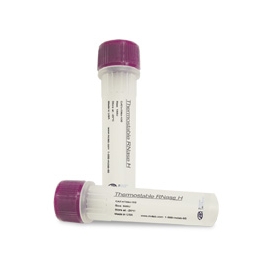 View full size
View full size
- Analiza kwasów nukleinowych
- Analiza białek
- Odczynniki biochemiczne
- Enzymy
- Edytowanie genów
- Klonowanie
- Diagnostyka kliniczna
- Human Identification STR kits
- Sprzęt laboratoryjny
- Oprogramowanie
- A&A Biotechnology
- AdvancedSeq
- BioDynami
- Plant Cell Technology
Aktualności
-
RANK 2026
Zapraszamy do odwiedzenia nas podczas jubileuszowej 20. edycji konferencji naukowej RANK 2026, która odbędzie się w dniach 18–19 marca w Pardubicach, w klubie ABC. Konferencja jest organizowana przez ...
Czytaj więcej -
XXXV. Izakovičov memoriál 2025
We are pleased to announce our participation in the prestigious XXXV. Izakovič Memorial 2025, which will take place on October 8–10, 2025 at the Grandhotel Praha, Tatranská Lomnica. The Izakovič Memo...
Czytaj więcej -
1st Czechoslovak Congress of Medical Genetics 2025
In the spring, we will participate in the 1st Czechoslovak Congress of Medical Genetics, which will take place from April 2–4, 2025, at the Cultural and Congress Center Elektra in the spa town of Luha...
Czytaj więcej
 View full size
View full size
Description:
Thermostable RNase H has an optimal activity above 65°C and can be used up to 95°C. The enzyme degrades RNA in a DNA:RNA hybrid, maximizing sensitivity and selectivity without affecting DNA or unhybridized RNA.
Application:
- High hybridization stringency
- Specific hydrolysis of RNA in a DNA:RNA hybrid
- Diagnostic assay of DNA sequences by isothermal probe amplification
- Mapping of mRNA structures
Source:
A recombinant protein purified from E. coli, cloned the gene encoding the Thermus thermophilus RNase H.
Unit Definition:
One unit of the enzyme results in the acid-solubilization of 1 nmol of polyadenylic acid in the presence of an equimolar concentration of polythymidylic acid in 20 minutes at 45°C in 50 mM Tris-HCl(pH 7.5), 100 mM NaCl, and 10 mM MgCl2. Note: The unit assay is performed at 45°C because this is optimal for the Tm of poly(dT):poly(A). The optimal temperature for many applications may be considerably higher.
10X RNase H Reaction Buffer
500 mM Tris-HCl(pH 7.5)
1 M NaCl
100 mM MgCl2
pH 7.6 @ 25°C
Storage Buffer:
Supplied in 50% Glycerol containing 50 mM Tris-HCl (pH 7.5), 0.1 M NaCl, 1.0 mM DTT, 0.1 mM EDTA, and 0.1% Triton X-100.
Recommended Storage Condition: -20°C


